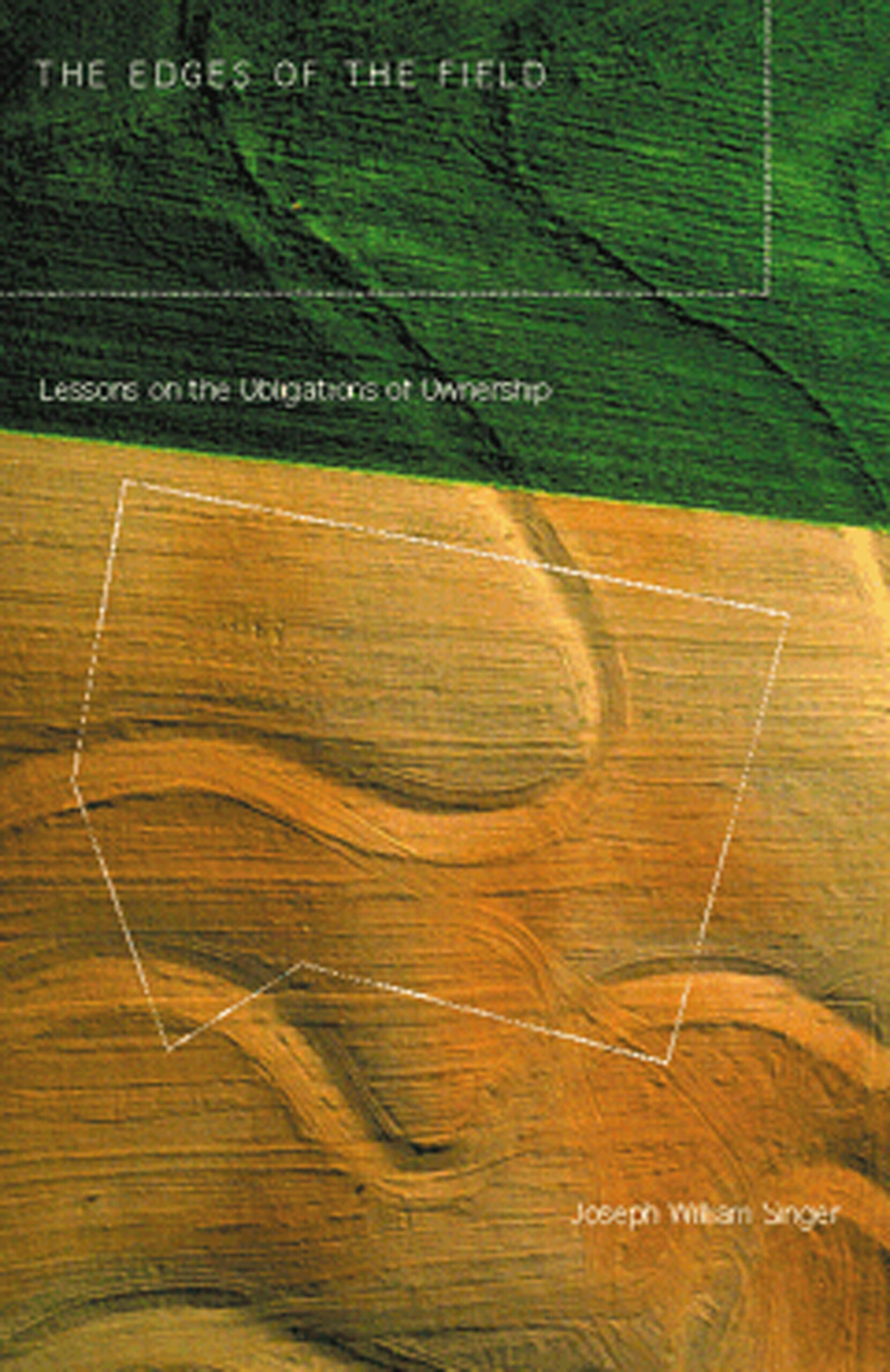
Credit: Martha Stewart Professor Joseph Singer
In his new book, The Edges of the Field: Lessons on the Obligations of Ownership (Beacon Press, 2000), Professor Joseph Singer ’81 explores the cultural, moral, religious, and legal traditions that define our understanding of property. Singer, an expert on property law, draws on sources as wide-ranging as the Torah, the musical Rent, and the example of Malden Mills owner, Aaron Feuerstein, who, after a devastating fire, rebuilt his factories and eventually rehired most of his former employees. In the following excerpt, Singer considers the implications of the public response to Feuerstein’s compassionate treatment of his workers.
“Why, indeed, were Feuerstein’s actions both so unusual and so widely heralded? Here is the paradox: On one hand, Feuerstein did not see his actions as extraordinary; he did what anyone would have done if they could. He felt he had acted with common decency. On the other hand, he was acclaimed because, even though most people agreed that he had done the right thing, his actions were perceived to be unusual. The public felt he had acted with uncommon decency, and lauded him as a hero and a saint. If everyone agrees that he did the right thing, why was it so unusual an action?
Other companies have not followed Feuerstein’s example even though his actions garnered good publicity and may have even helped the company. Why don’t others do the same? The answer is that most large companies are not privately owned by individuals like Feuerstein, but are publicly owned by shareholders. One might think that a publicly held company might have public obligations. The reality is that such companies are managed by professionals who are obligated under existing law to maximize returns to shareholders, whether or not this is in the greater public interest. Existing law not only does not encourage most employers to act as Feuerstein did, but may actually prohibit them from responding as he did. If the president of a publicly owned company had followed Feuerstein’s example, he might have faced a lawsuit by disgruntled shareholders claiming that he was not maximizing the value of their shares and thus was acting in contradiction to his fiduciary duties to them as owners of the corporation. . . .
 If what Feuerstein did was so admirable, why is it illegal for most business managers to do what he did? Let us put the question more broadly: Can a religious or moral person be successful in business? Is it possible to be good and to do well at the same time? Does morality require us to look out for each other? If so, why does the law get in the way?
If what Feuerstein did was so admirable, why is it illegal for most business managers to do what he did? Let us put the question more broadly: Can a religious or moral person be successful in business? Is it possible to be good and to do well at the same time? Does morality require us to look out for each other? If so, why does the law get in the way?
The Feuerstein story is a symbol of the contradictions of our age. We are a nation seemingly committed to deregulation, the protection of private property, and the end of “welfare as we know it.” At the same time, we are morally committed to the notions of equality, human dignity, compassion, and responsibility. These political and moral commitments are in some tension, if not outright contradiction. . . . On one side are claims to rights; on the other side are acknowledgments of responsibilities. On one side are the values of liberty and autonomy; on the other side are the values associated with security, social stability, and solidarity.
The Feuerstein story is fascinating because it demonstrates a deep ambivalence about our brave new world of relentless individualism. While many of us are attracted to the images of liberty embedded in the vision of limited government, we are also worried about the insecurity this entails. After all, liberty seems to mean freedom from obligation. The promotion of liberty is an invitation to act in a self-interested manner. Self-interest has a pleasant face; it means that we can live our lives on our own terms. But it also has a dark side; it promotes indifference to the effects of one’s actions on others. Indifference to others is not a virtue.
From The Edges of the Field: Lessons on the Obligations of Ownership. Copyright © 2000 by Joseph William Singer. By permission of Beacon Press,www.beacon.org.
